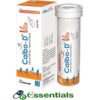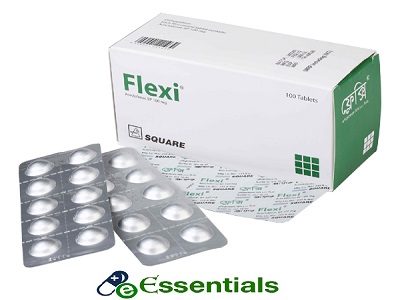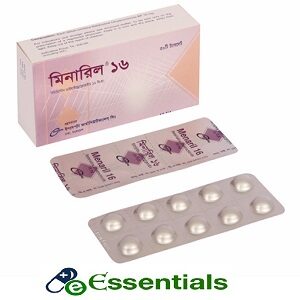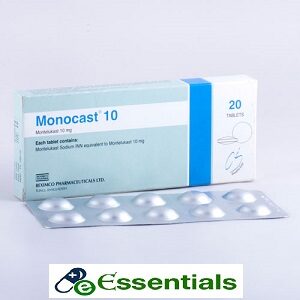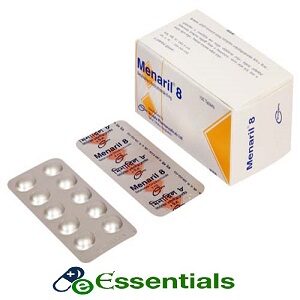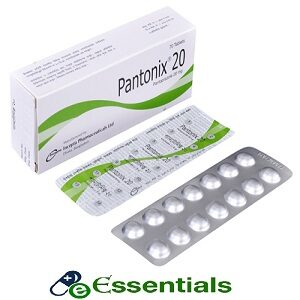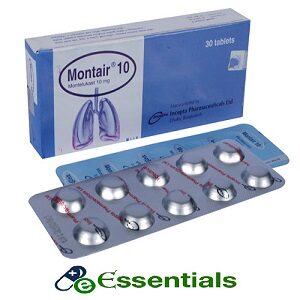Flexi Tablet 100 mg 1pcs
৳ 5.00
Ingredients : Aceclofenac 100 mg
Indications
Therapeutic Class
Pharmacology
Aceclofenac is a non-steroidal agent with marked anti-inflammatory and analgesic properties. The mode of action of aceclofenac is largely based on the inhibition to prostaglandin synthesis. Aceclofenac is a potent inhibitor of the enzyme cyclo-oxygenase, which is involved in the production of prostaglandins.
Dosage & Administration
Adults: 100 mg twice daily, one in the morning & one in the evening or 200 mg (one SR tablet) once daily.
Children: Not recommended.
Reduce the dosage to 100 mg daily initially in patients with hepatic dysfunction. There is no evidence that the dosage of aceclofenac needs to be modified in patients with mild renal impairment, but as with other NSAIDs caution should be exercised.
Interaction
Lithium and Digoxin: Aceclofenac, like many NSAIDs may increase plasma concentrations of lithium and Digoxin.
Diuretics: Aceclofenac, like other NSAIDs, may interact the activity of diuretics.
Anticoagulants: Like other NSAIDs, Aceclofenac may enhance the activity of anticoagulant. Close monitoring of patients on combined anticoagulants and Aceclofenac therapy should be undertaken.
Methotrexate: Caution should be exercised if NSAIDs and Methotrexate are administered within 24 hours of each other, since NSAIDs may increase Methotrexate plasma levels, resulting in increased toxicity.
Contraindications
Aceclofenac should not be administered to patients with active or suspected peptic ulcer or gastro-intestinal bleeding. It should not be given to patients with moderate to severe renal impairment. Close medical surveillance is also imperative in patients suffering from severe impairment of hepatic function. It should not be prescribed during pregnancy, unless there are compelling reasons for doing so. The lowest effective dosage should be used. Aceclofenac should not be administered to patients previously sensitive to Aceclofenac or in whom aspirin or NSAIDs precipitate attacks of asthma, acute rhinitis or urticaria or who are hypersensitive to these drugs.
Side Effects
The majority of side-effects observed have been reversible and of a minor nature and include gastro-intestinal disorders (dyspepsia, abdominal pain, nausea and diarrhea) and occasional occurrence of dizziness. Dermatological complaints including pruritus and rash and abnormal hepatic enzyme levels and raised serum creatinine have occasionally been reported.
Pregnancy & Lactation
The use of Aceclofenac should be avoided in pregnancy and lactation unless the potential benefits to the mother outweigh the possible risks to the fetus.
Precautions & Warnings
Aceclofenac should not be administered to patients with active or suspected peptic ulcer or gastro-intestinal bleeding. It should not be given to patients with moderate to severe renal impairment. Close medical surveillance is also imperative in patients suffering from severe impairment of hepatic function. It should not be prescribed during pregnancy, unless there are compelling reasons for doing so. The lowest effective dosage should be used. Aceclofenac should not be administered to patients previously sensitive to Aceclofenac or in whom aspirin or NSAIDs precipitate attacks of asthma, acute rhinitis or urticaria or who are hypersensitive to these drugs.
Overdose Effects
There are no human data available on the consequences of Aceclofenac over dosage. If over dosage is observed, therapeutic measures should be taken according to symptoms; supportive and symptomatic treatment should be given for complications such as hypotension, gastro-intestinal irritation, respiratory depression, and convulsions.
Storage Conditions
Keep at a cool and dry place, protected from light and moisture.
Brand
Square Pharmaceuticals Ltd



